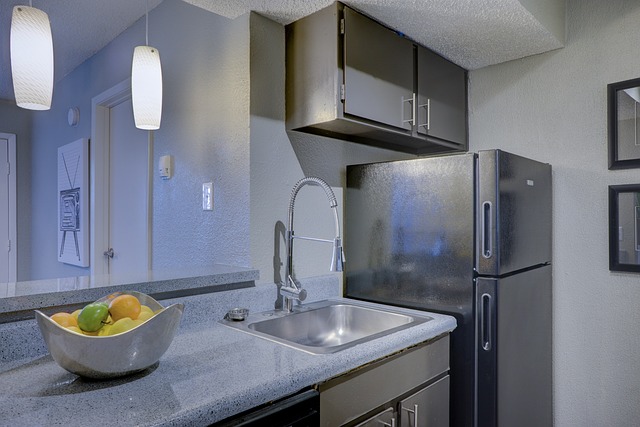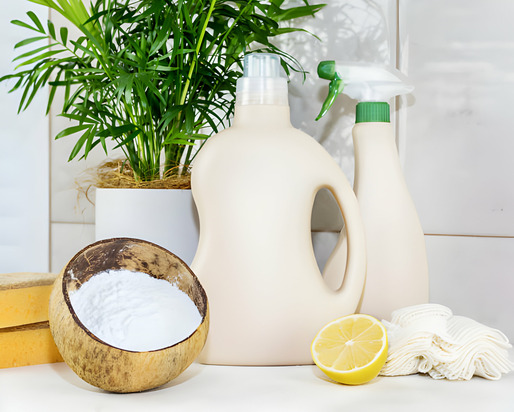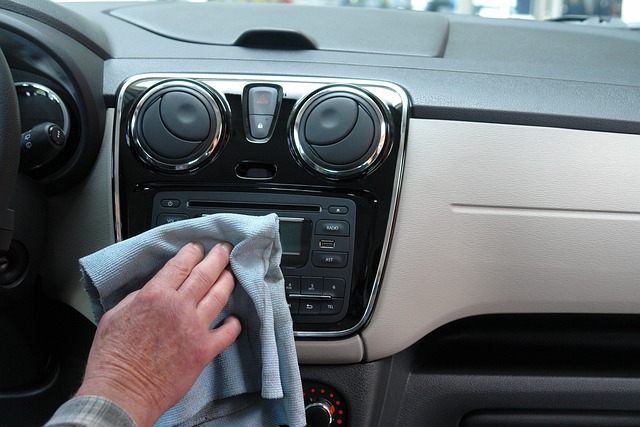The refrigerator is the heart of your kitchen, preserving and storing your food. A clean refrigerator not only maintains the freshness and safety of your groceries but also contributes to the overall hygiene of your kitchen. In this comprehensive guide, we will take you through the steps of cleaning your refrigerator thoroughly and efficiently. From decluttering and organizing to addressing stubborn stains and odors, this guide covers all aspects of refrigerator cleaning. Regular refrigerator cleaning not only ensures food safety and minimizes waste but also extends the lifespan of your appliance, optimizes energy efficiency, and enhances the aesthetics of your kitchen.
Preparing for Cleaning
- Assembling the necessary supplies: Before you begin the cleaning process, gather the essential cleaning supplies, including mild detergent, warm water, vinegar, baking soda, microfiber cloths, and any specialized refrigerator cleaning products.
- Safety precautions: Prioritize safety by unplugging the refrigerator and, if possible, removing perishable items from the appliance to prevent food spoilage during cleaning.
- Declutter and organize: Remove all items from the refrigerator, discarding expired or spoiled products and organizing the remaining items for easy access and inspection.
Interior Cleaning
- Remove shelves and drawers: Remove all removable parts such as shelves, drawers, and door bins. These can be washed separately in warm soapy water.
- Wipe interior walls: Using a solution of warm water and mild detergent, wipe down the interior walls and ceiling of the refrigerator. Pay attention to corners and crevices where spills and residue tend to accumulate.
- Clean shelves and drawers: Wash shelves and drawers in warm soapy water, then rinse and allow them to air dry before returning them to the refrigerator.
- Sanitize surfaces: To ensure proper sanitization, consider using a mixture of one part white vinegar and two parts water to wipe down all surfaces. This helps eliminate bacteria and odors.
- Addressing stubborn stains: For tough stains or residue, create a paste of baking soda and water and apply it to the affected area. Allow it to sit for a few minutes before scrubbing with a cloth.
- Drip pan and water dispenser: Check and clean the drip pan located beneath the refrigerator and wipe down the water dispenser or ice maker if applicable.
Exterior Cleaning
- Clean the exterior surfaces: Wipe down the exterior surfaces of the refrigerator, including the door, handles, and sides, using warm soapy water. Be sure to dry them thoroughly to prevent streaks.
- Stainless steel care: If your refrigerator has a stainless steel finish, use specialized stainless steel cleaner to prevent scratching or discoloration. Always follow the manufacturer’s recommendations.
- Handle hygiene: Disinfect refrigerator handles regularly, as they are among the most frequently touched surfaces in your kitchen.
- Dusting coils and vents: Regularly vacuum the coils and vents on the back of the refrigerator to ensure proper ventilation and efficient cooling.
Odor Control
- Natural deodorizers: Place natural deodorizers such as a bowl of baking soda or activated charcoal in your refrigerator to absorb odors.
- Eliminating lingering smells: For persistent odors, place a dish of coffee grounds, a few slices of lemon, or activated charcoal in the refrigerator for a day or two to neutralize any remaining smells.
- Maintain a fresh refrigerator: To prevent odors from returning, regularly clean and inspect your refrigerator to remove spoiled or expired food items promptly.
Cleaning the Freezer
- Remove all items: Empty the freezer, discarding any freezer-burned or expired items, and transfer the rest to a cooler temporarily.
- Defrosting: If your freezer needs defrosting, unplug the refrigerator and allow the ice to melt. Be prepared to catch water in a container to prevent leakage.
- Clean and sanitize: Clean the freezer using warm soapy water or a vinegar and water solution. Pay particular attention to seals and gaskets, which can accumulate ice and residue.
- Preventing freezer burn: Reorganize the freezer, ensuring items are properly sealed to prevent freezer burn.
Maintaining Regular Cleaning
- Establish a cleaning schedule: Create a routine cleaning schedule for your refrigerator to ensure consistent upkeep and prevent the accumulation of dirt, spills, and odors.
- Weekly quick checks: Perform weekly quick checks to identify and remove any expired or spoiled food items, and address any immediate spills or messes.
- Quarterly deep cleaning: Undertake a more thorough deep cleaning every three to four months, ensuring all parts of the refrigerator are sanitized and organized.
- Consistent upkeep: To keep your refrigerator in top condition, make refrigerator cleaning a regular part of your household routine. A monthly clean and inspection can prevent mold, odors, and food contamination.
- Inspecting the door seals: Regularly check the condition of the door seals for any signs of wear or damage. If they are not sealing properly, your fridge may be working harder than necessary to maintain its temperature.
- Temperature monitoring: Use a refrigerator thermometer to ensure your fridge is maintaining the optimal temperature (around 37°F or 3°C) and the freezer is at 0°F (-18°C).
Benefits of Cleaning Your Refrigerator
- Food safety: Regular cleaning of your refrigerator prevents cross-contamination, mold, and the growth of harmful bacteria, ensuring the safety of your stored food.
- Energy efficiency: A clean refrigerator operates more efficiently, reducing energy consumption and ultimately saving you money on your utility bills.
- Appliance longevity: Proper maintenance and cleaning extend the lifespan of your refrigerator, delaying the need for a replacement.
- Hygiene and health: A clean refrigerator contributes to a hygienic and healthy environment, reducing the risk of foodborne illnesses.
- Food waste reduction: By keeping your refrigerator clean and organized, you are less likely to overlook items, resulting in less food waste.
Conclusion
Your refrigerator is the heart of your kitchen, and it deserves the same care and attention as any other appliance. Regular cleaning not only enhances its appearance but also ensures the safety of your food and the efficiency of your appliance. We encourage you to incorporate regular refrigerator cleaning into your household routine. It’s a simple yet essential task that pays off in terms of health, energy efficiency, and appliance longevity. A clean refrigerator is a cornerstone of a healthier and more efficient home, contributing to your overall well-being and the sustainability of your household.








